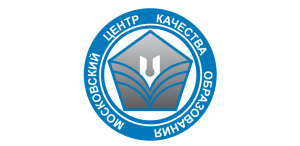МЦКО. Проверочная работа проводится с целью осуществления мониторинга уровня и качества подготовки обучающихся в соответствии с требованиями федерального государственного образовательного стандарта начального общего образования и федеральной образовательной программы начального общего образования. Период проведения – апрель–май 2025 года.
Купить официальные варианты МЦКО 2024-2025 учебного года
Официальная демоверсия МЦКО: Скачать в PDF
Внимательно прочитайте текст задания и прослушайте аудиозапись. Вы услышите 6 высказываний. Установите соответствие между высказываниями каждого говорящего A–F и утверждениями, данными в списке 1–7. Используйте каждое утверждение, обозначенное соответствующей цифрой, только один раз. В задании есть одно лишнее утверждение. Вы услышите запись дважды. Занесите свои ответы в таблицу. УТВЕРЖДЕНИЯ
1. Some media content can cause destructive behaviour.
2. There is a promotion of health in the media.
3. Social media boost teens’ assurance.
4. Modern media can be educational.
5. School and parents are responsible for what kids watch.
6. Social media must be banned.
7. I am against using social media by children.
Запишите в таблицу номера выбранных утверждений для каждого из говорящих.
Прочитайте текст и выполните задания 2–7.
Financial literacy
Recently there has been a lot of talk about financial literacy and the need to increase it. Even though the educational space of the school is perceived as a resource for activating this issue, still there is a low level of financial literacy of the population.
The majority of people start managing money at the age of 35–40. As a result, they do not understand why, despite having a good salary, they still cannot manage money wisely: cannot afford to buy an apartment and travel so rarely. In fact, you should start managing money as early as possible. It is even easier to do this at school or as a student: if you study with small amounts, then the cost of a mistake is low. Saving at least 200 rubles from each scholarship – not for accumulating a lot of capital, but for developing the habit of not spending all your income. When large sums appear, managing money will be much easier. Financial literacy is like a school subject. You start with basic principles and learn more and more useful tools over time.
Money management is the same as time management, but it is just about money. Imagine that you are thinking about what to do in the evening: watch a TV series or learn English. In the end, you decide that English is more important than the new series, so you sit down with your textbooks. It is the same with money: you decide which expenses are important and which can wait, so you spend some amount of your scholarship not on a cup of cappuccino in a coffee shop but save it for new sneakers.
What about other ways to become financially smart? In fact, money management is a personal finance management system. To reduce expenses and increase savings, various techniques and tools are used: spend analysis, savings accounts, deposits, investments. It is important to understand that managing money does not mean saving on everything. It is a temporary measure, for example, if you stopped working part-time during the exam session and your income dropped sharply. Managing means consciously spending money on what is important.
Our brain works in such a way that sometimes we make impulsive purchases, even with a limited budget. This happens because we are influenced by advertising, marketing, environment and our inner state when making decisions.
There are several hacks that can help to avoid falling for the tricks of brands and our own brains. Firstly, take a pause if you do not understand whether you really need the thing you like. Postpone your purchase for at least 24 hours, or better yet, a few days. After this time, it will be easier to figure out whether it is worth spending the money. Secondly, imagine that you are offered an alternative: to get what you want for free or an equivalent amount of money instead. If you choose money, you do not need the item. Finally, find other sources of pleasure apart from shopping. Go to a park or museum, play sports, reread your favourite book, or watch an interesting film. And remember that everyone can save, invest and manage money wisely, even if their income is small!
Определите, соответствует ли приведённое утверждение содержанию текста (True), не соответствует (False) или об этом в тексте не сказано, то есть на основании текста нельзя дать ни положительного, ни отрицательного ответа (Not stated).
People with good salaries are usually financially smart.
1) True 2) False 3) Not stated The sooner you start managing money, the better.
1) True 2) False 3) Not stated Planning is the basic principle of financial literacy.
1) True 2) False 3) Not stated You don’t have to save money on everything.
1) True 2) False 3) Not stated Tight budget doesn’t allow us to make spontaneous purchases.
1) True 2) False 3) Not stated Don’t put shopping off for later to avoid unnecessary purchases.
1) True 2) False 3) Not stated

